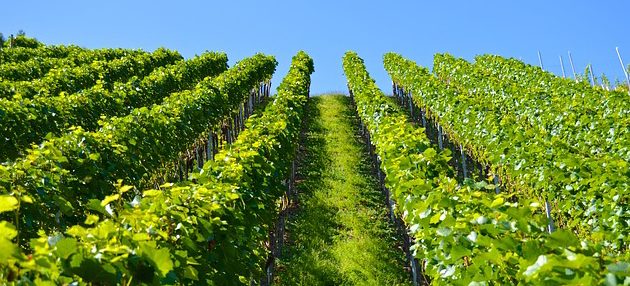April 15, 2021
By Lynda Kiernan, Global AgInvesting Media
Melbourne-based specialist agricultural asset manager Warakirri Asset Management has announced the launch of the Warakirri Farmland Fund, an open-ended investment vehicle created to capitalize upon the opportunities born of growing global demand for food, and Australia’s key role in the global food supply chain.
Warakirri, which is one of the largest ag investment managers and operators in Australia with approximately A$1.8 billion (US$1.4 billion) in funds under management and commitments, and controlling a portfolio of more than 200,000 hectares (500,000 acres) of Australian agricultural land, is targeting up to A$500 million (US$386.6 million) for the fund.
“The farmland strategy leverages our 24 years’ experience in agriculture and supports our objective of providing investors with access to strategies with low correlation to listed markets,” said Jim McKay, managing director, Warakirri.
“It provides an attractive option for institutional investors who are seeking greater access to alternative assets, with low volatility and the strong returns being generated from a diversified exposure to the resilient farmland sector.”
Much like its diversified agricultural fund which began fundraising at the start of 2019, Warakirri plans for this farmland fund to acquire, develop, and own a diversified portfolio of investment grade agricultural assets, which will be leased to high-quality agricultural businesses as tenant partners.
“The launch of this fund follows the success we have had with a similar strategy we developed for wholesale investors, including family offices, charities, and advisory groups,” said Steve Jarrott, portfolio manager for the new fund. “That fund has recently completed deployment of its initial capital raising, establishing a foundation portfolio that will provide secure long-term income return of 8-9 percent per annum, with strong long-term capital growth potential.”
Targeted assets will include horticulture (nuts and fruits), viticulture (wine and table grapes), water entitlements, and select row crop farmland assets. The fund will also employ Warakirri’s Sustainable Best Practices framework toward reducing energy use and carbon emissions, and improving water efficiency and biodiversity through the management and operation of these assets.
Created specifically for domestic and offshore institutional investors, the fund has already secured significant cornerstone funding from one of the largest pension funds in Europe, which McKay noted to IPE Actual Belongings was drawn to the fund due to Australia’s scale and growing productivity aligned with increased capital flows into the country’s ag sector, and the country’s proximity and potential for exporting to Asia.
“This European pension fund saw what we were doing with our diversified fund and so we worked with them over a 12- to 18-month period to design a strategy that will meet their needs for a good return profile and exposure to Australian and New Zealand farmland,” McKay told Australian Financial Review.
With the goal of identifying assets with strong fundamental potential for long-term returns, the fund has already deployed capital across several acquisitions, and has worked with high-quality tenants to establish long WALE leases with rental yields of seven percent or greater.
“We see enormous upside from a productivity perspective,” McKay told AFR.
“Institutional capital is driving a lot of efficiencies and improvements in productive capacity. It’s one of the reasons why you are seeing a lot of interest from global pension funds in agriculture.”
Expectations are that the fund will deliver a strong return profile with more than half the forecasted returns to be generated through regular income payments, and the remainder to be gained via long-term capital growth of the underlying assets, stated Warakirri.
“Agriculture is supported by a strong, long-term secular demand outlook for Australian agricultural products, and participating investors are being rewarded with top tier investment performance over the long term, with low volatility and low to zero correlation to traditional asset classes,” noted the company in a statement.
“There is a compelling case for investors to consider agricultural exposure as part of a well-diversified investment portfolio,” added Jarrott.
– Lynda Kiernan is editor with GAI Media, and is managing editor and daily contributor for Global AgInvesting’s AgInvesting Weekly News and Agtech Intel News, as well as HighQuest Group’s Oilseed & Grain News. She can be reached at lkiernan@globalaginvesting.

Let GAI News inform your engagement in the agriculture sector.
GAI News provides crucial and timely news and insight to help you stay ahead of critical agricultural trends through free delivery of two weekly newsletters, Ag Investing Weekly and AgTech Intel.




